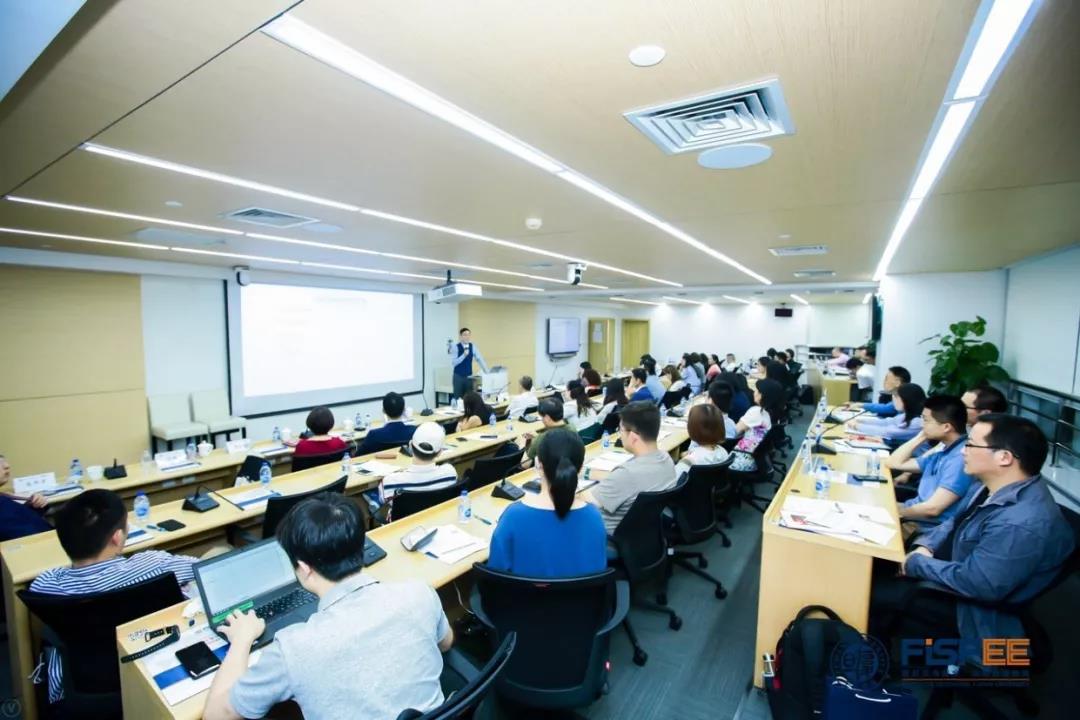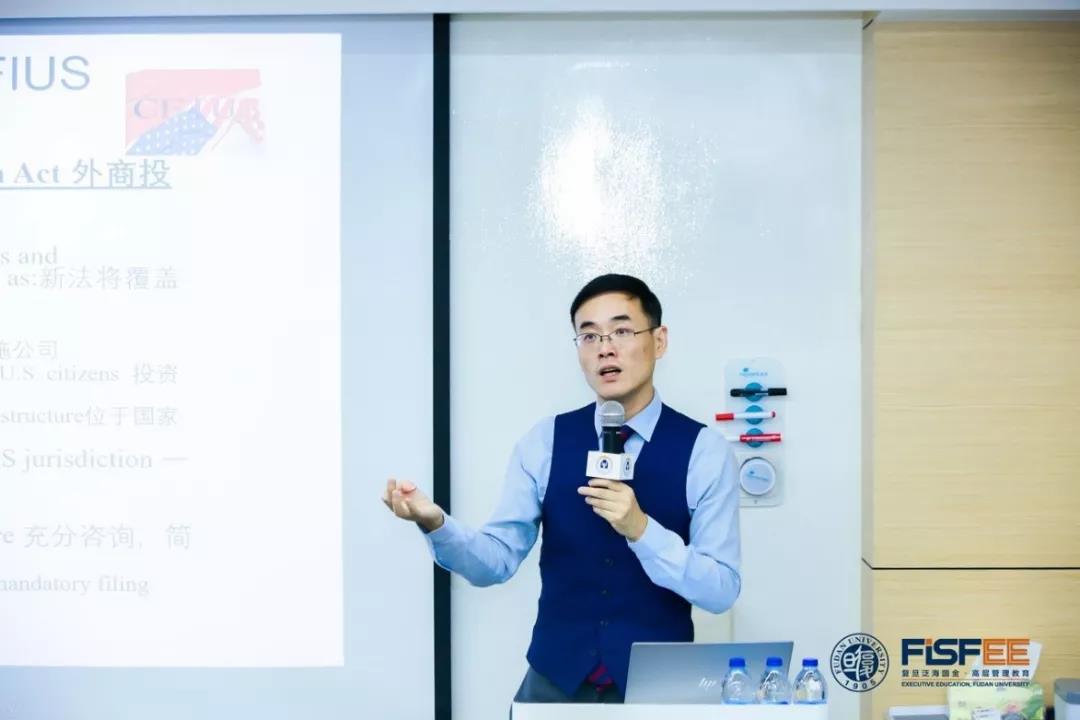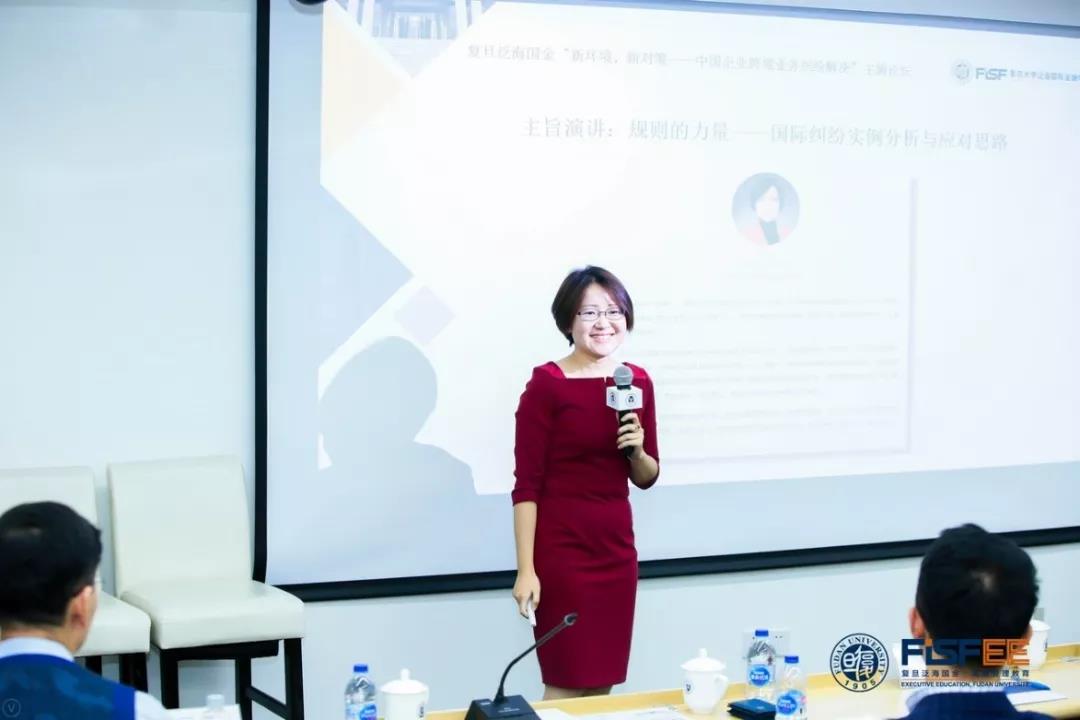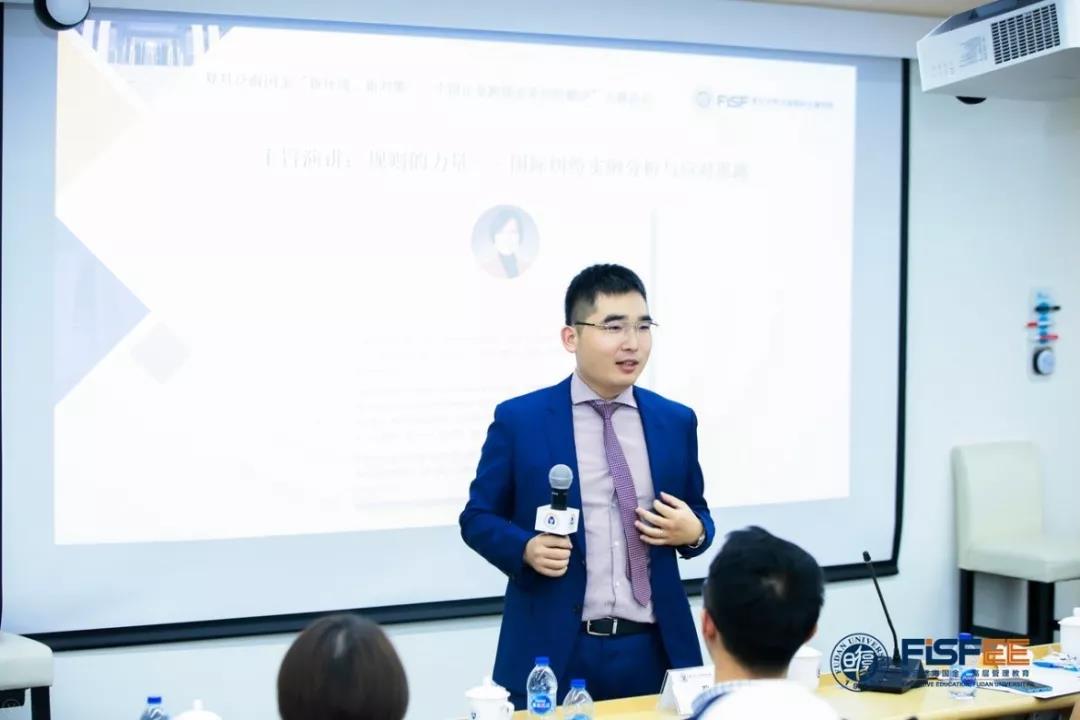
-
 86-21-63895588
86-21-63895588
-
 No.1, Lane 600, Nanchezhan Road, Huangpu District, Shanghai 200011
No.1, Lane 600, Nanchezhan Road, Huangpu District, Shanghai 200011
Release time:2019-10-12
Chinese enterprises have steadily integrated more and more into the global economy, but many still lack basic understanding of compliance and legal risk prevention. In such a drastically changing global environment, this lack of awareness may lead to “potential challenges” and various “traps”.
So, how should Chinese enterprises face these potential challenges and remain steady in a tumultuous global environment? How should we regard international disputes while further integrating into the international community? How should we properly apply international arbitration when faced with disputes, and what should we do to reduce legal risks and enhance compliance management?
To address these concerns, nearly one hundred Chinese entrepreneurs, business founders, and senior executives attended the “New Environment, New Countermeasures - Settlement for Cross-border Business Disputes of Chinese Enterprises” forum on the evening of September 25th, 2019. This forum, hosted by Executive Education of Fanhai International School of Finance, Fudan University (FISF EE), invited Gao Huasheng, Associate Dean of FISF and Professor of Finance, Shen Wei, Distinguished Visiting Professor of Koguan School of Law, Shanghai Jiao Tong University and Professor of Global Law of New York University Law School, and Zhou Xinru, Founder of Law+ and Practical Tutor of Professional Masters of Fudan University, to focus on the rapidly changing international situation by analyzing the latest archetypal cases from international arbitration, law, finance, and management to explore the supervisory regulations and critical opportunities that influence Chinese enterprises. The goal was to prepare these institutions to better manage such potential legal challenges and their associated difficulties.

▲The “New Environment, New Countermeasures - Settlement for Cross-border
Business Disputes of Chinese Enterprises” Forum Packed Out
Professor Shen Wei opened the forum by delivering a keynote speech titled, “Unconscious Traps: Major Legal Topics of Sino-US Trade Frictions and Legal Dilemma of Cross-border Investment”. Professor Shen talked about the recent Sino-US trade disputes and how the US was able to conduct trade sanctions on China using its own domestic laws. Confined by the Foreign Investment Risk Review Modernization Act, Professor Shen suggested Chinese enterprises carry out compliance transactions. However, he noted there are still risks of America’s long-armed jurisdiction for Chinese enterprises to avoid, such as being sanctioned due to transactions of components made in America, or “contributions” to the infringements of relevant sanction rules of American individuals or entities. Moreover, Chinese enterprises conducting business in Iran, North Korea, Russia, Cuba, and Venezuela are not allowed to operate in the US.
When it came to cross-border investment traps, Professor Shen noted that the International Emergency Economic Powers Act, Export Administration Regulation, Anti-Money Laundering Law of the United States of America, Bank Secrecy Act, USA Patriot Act, Foreign Corrupt Practices Act, and Arms Export Control Act are all “potential challenges” that require cautious steps to navigate. Conversely, investment arbitration is more likely to take place in countries along the “Belt and Road”, with higher political risks and weaker protection of foreign investment. Therefore, Chinese enterprises should stay alert for possible risks if involved in any investments in these countries.

▲Shen Wei, Distinguished Visiting Professor of Koguan School of Law, Shanghai Jiao Tong University
and Professor of Global Law of New York University Law School, making his keynote speech
Later, Ms. Zhou Xinru, Founder of Law+ and Practical Tutor of Professional Masters of Fudan University, delivered her keynote speech, “Power of Rules: Example Analysis of International Disputes and Corresponding Methods.” She began by addressing the common issue of Chinese enterprises going abroad to make cross-border acquisitions only to be met by litigation lawsuits. The most likely reason for this is a simple lack of knowledge of the rules; such enterprises are less likely to understand how certain entrepreneurial rules apply to them. The question they must ask themselves is whether they are playing by the rules or whether they are getting played by the rules. To help Chinese businesses answer this, Ms. Zhou gave vivid interpretations of a number of real cases. The Foreign Corrupt Practices Act, for example, carried out stricter law enforcement on non-US companies than on US companies. This “long-armed jurisdiction” is actually a part of the US’ standard foreign policy measures. As a result, Chinese enterprises should keep pace with their compliance operations and take advantage of the power of rules, which requires them to consciously pay attention to these statutes. In the past, entrepreneurs were often unwilling to carefully read tedious clauses, local social policies and systems (including those of environmental protection, laborers, antitrust, etc.), as well as articles and cases written in black and white. Ms. Zhou recommended all entrepreneurs study the basic knowledge of risk management, have faith in professional lawyers, empower the staff responsible for legal compliance, and allow legal experts to guide them and their enterprises to participate in the global economy.

▲Ms. Zhou Xinru, Founder of Law+ and Practical Tutor of Professional Masters of
Fudan University delivering her keynote speech
In a new course offered by FISF, Global Entrepreneur Program, there is a major module on exploring how Chinese enterprises, in the dynamic industrial environment at home and abroad, can avoid risks and reduce business costs in their efforts to make industrial breakthroughs. In response to this, Professor Shen Wei and Ms. Zhou Xinru gave analysis on various examples and presented the guests with speculation that was both profound and inspiring.
In the next stage of the program, Gao Huasheng, Associate Dean of FISF and Professor of Finance, commented on the splendid speeches made by the forum’s guests. He interpreted the Foreign Corrupt Practices Act (FCPA for short) from financial and commercial perspectives with humorous language, thus opening the views of the audience. He stated that the implementation of FCPA displayed three major trends: enhanced law enforcement, higher “globalization”, and more radical law enforcement methods. Still, he noted, the FCPA had managed some positive influence as well. For example, it increased the competitiveness of the anti-corruption enforcement market and has the potential to break the “prisoner's dilemma” of “everyone giving or taking bribes” and possibly forming a “whistleblower economy”.

▲Gao Huasheng, Associate Dean of FISF and Professor of Finance, giving remarks